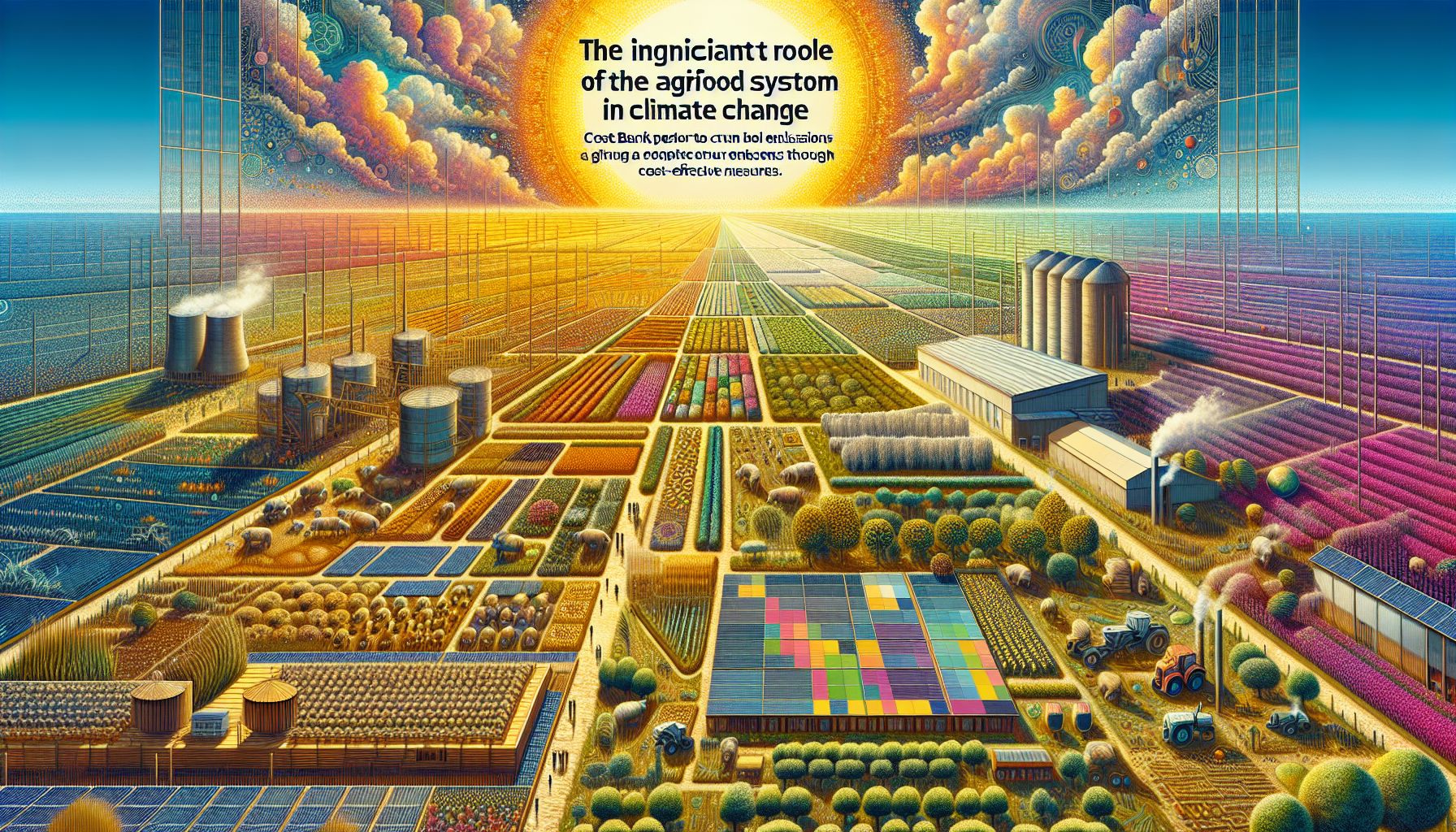World Bank report spotlights agrifood system's role in climate change

New World Bank report identifies agrifood sector as key to slashing a third of global emissions by 2050 through cost-effective measures.
Transformative Actions for a Greener Future
The World Bank’s recent report provides a critical analysis of the global agrifood system, highlighting its potential to significantly reduce greenhouse gas emissions by a third if strategic, cost-effective measures are taken. According to Axel van Trotsenburg, the World Bank Senior Managing Director, the agrifood sector, while currently a major contributor to climate change, represents an untapped opportunity for mitigation. The report emphasizes that middle-income countries are particularly pivotal, as their adoption of greener practices and more efficient land use could lead to considerable emission reductions by 2030[1][2].
The Path to Net Zero Emissions
Achieving net zero emissions in the agrifood sector by 2050 is a challenging yet attainable goal, with the World Bank outlining various strategies for different economic contexts. High-income countries are encouraged to support low- and middle-income nations in transitioning to low-emission farming methods. Meanwhile, low-income countries are advised to focus on preserving and restoring forests, thereby avoiding the environmental pitfalls experienced by wealthier nations. The report sets a target of $260 billion in annual investments, a figure that is dwarfed by the projected $4 trillion in resultant benefits, including improved human health and enhanced carbon sequestration[2][3].
International Collaboration and Innovation
Collaboration is crucial in this global effort, as evidenced by the Global Research Alliance’s workshop in Nairobi, Kenya. The workshop, involving institutions from Germany, New Zealand, France, and Kenya, addressed the challenges and potential solutions for food loss and waste prevention in Sub-Saharan Africa. Notably, New Zealand’s support through the Global Research Alliance on Agricultural Greenhouse Gases emphasizes the global consensus on the urgent need to address agrifood emissions, with shared goals of quantifying and reducing food loss and waste as a priority[4].
Sustainability at the Forefront of U.S. Agriculture
Parallel to the World Bank’s findings, the U.S. Department of Agriculture has committed to sustainability objectives that align with the global reduction of emissions and deforestation. The USDA has reported an increase in forest carbon stocks within the United States, signifying a positive trend in sustainable forest management. This commitment extends to the global stage, where the U.S. supports initiatives to halt and reverse forest loss by 2030, underlining a synergy between domestic and international efforts to combat climate change[5].

